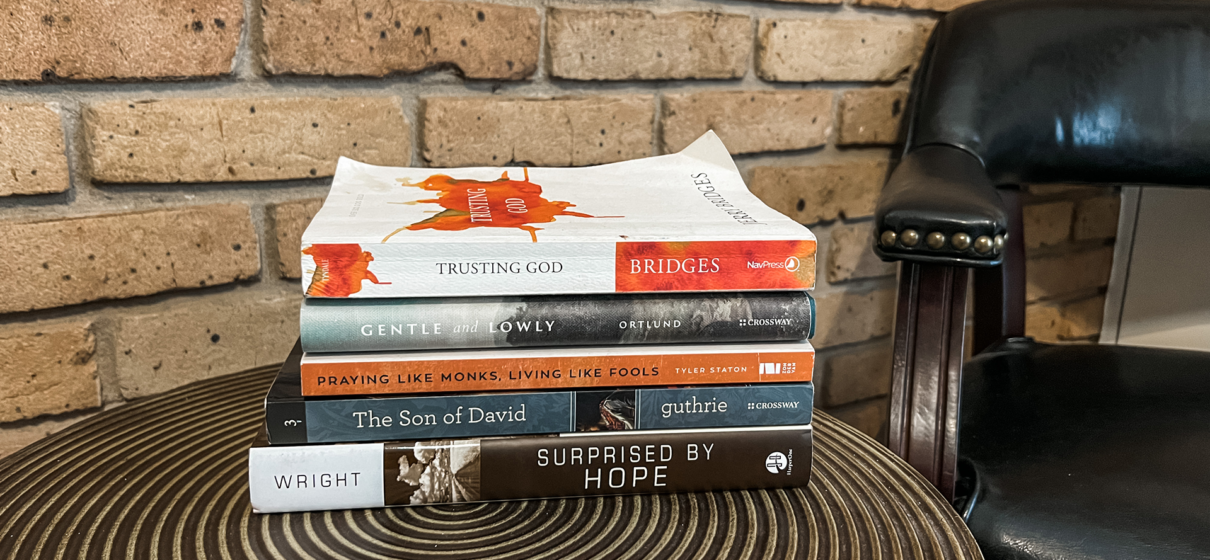‘Tis the Party Season
The same thing happens to me every year on Christmas morning. I’m awake very early. I sit with some coffee and listen to “Behold the Lamb of God,” and read the Christmas story in Luke. Then I start thinking about all the people I know and love who are in the grips of profound sadness, people who will celebrate Christmas without a child, or a parent, or a spouse who has passed away. I think about people who are very sick and about the ones who won’t get better. Without fail I end up in tears. Everything in me wants to just scream that this is so wrong. Death and pain and loneliness are everywhere all the time. Every year, in the wee hours of Christmas morning my heart breaks, because I know for many people the season exacerbates their pain.
Then, I look around at all collage of beautiful (and cheesy) Christmas paraphernalia that surrounds me. Someone who didn’t know us might think we have bought in to all the worst that secular culture has done to Christmas. We bring out the Christmas coffee mugs, cheesy musical Christmas toys, the door mat that plays a carol when you step on it, snowflake window decals, the electronic Christmas bell band, the basket full of elf hats, and the fake snowballs (really, whatever Wal-Mart was going to put in the dumpster we use at home to decorate for Christmas).
But even though they are just trinkets, and woefully inadequate, they proclaim that in our home we are remembering and rejoicing that something beautiful has happened.
We delight in the day because we believe the story.
We believe Mary rode a donkey to Bethlehem and had a baby in a barn. We believe the angels burst out of the sky and blew the shepherd’s minds as they sang about the glory of God’s love. We believe Joseph maybe still had his doubts, but he trusted and obeyed God, and so witnessed the miracle. We believe that the child born of Mary is the Savior of the world, our Savior, and the Savior of all those people my heart hurts for on Christmas morning.
Every year as I sit in the light of the Christmas tree and listen to the story in song my tears change from sorrow to joy. Every year the wonder of God’s grace wells up in me and fills me with so much happiness and hope I want to burst.
How can I not jump for joy? Our Savior has come to us!
Christmas at our house means non-stop feasting and carbohydrate overload. We open presents. We launch sticky rubber chickens so they stick to the ceiling, then shoot them off with helicopter pistols and Nerf guns. We have fake snowball fights. We blow up balloons that fly around the house and make fart sounds. We play with all the new toys and wear our new slippers and wear ourselves out having the best time together.
But I love Christmas and Christmas day because I cherish the story the season represents.
I think it is God’s grace to us that so much of our culture still pauses for the season. Even if for many people it is just a few days off work, or if they think it’s just the greatest marketing ploy ever; even if some Christians get put off because an unbelieving culture doesn’t honor the meaning of a miracle they don’t believe; none of that inhibits the party at our house.
The holidays are no different than any other expression of God’s common grace to people – you can miss it completely if you choose to. Or, you can have eyes to see that God has given the most wondrous reason to throw a party.
And the angel said to them, “Fear not, for behold, I bring you good news of great joy that will be for all the people. For unto you is born this day in the city of David a Savior, who is Christ the Lord.” – Luke 2: 10-11















